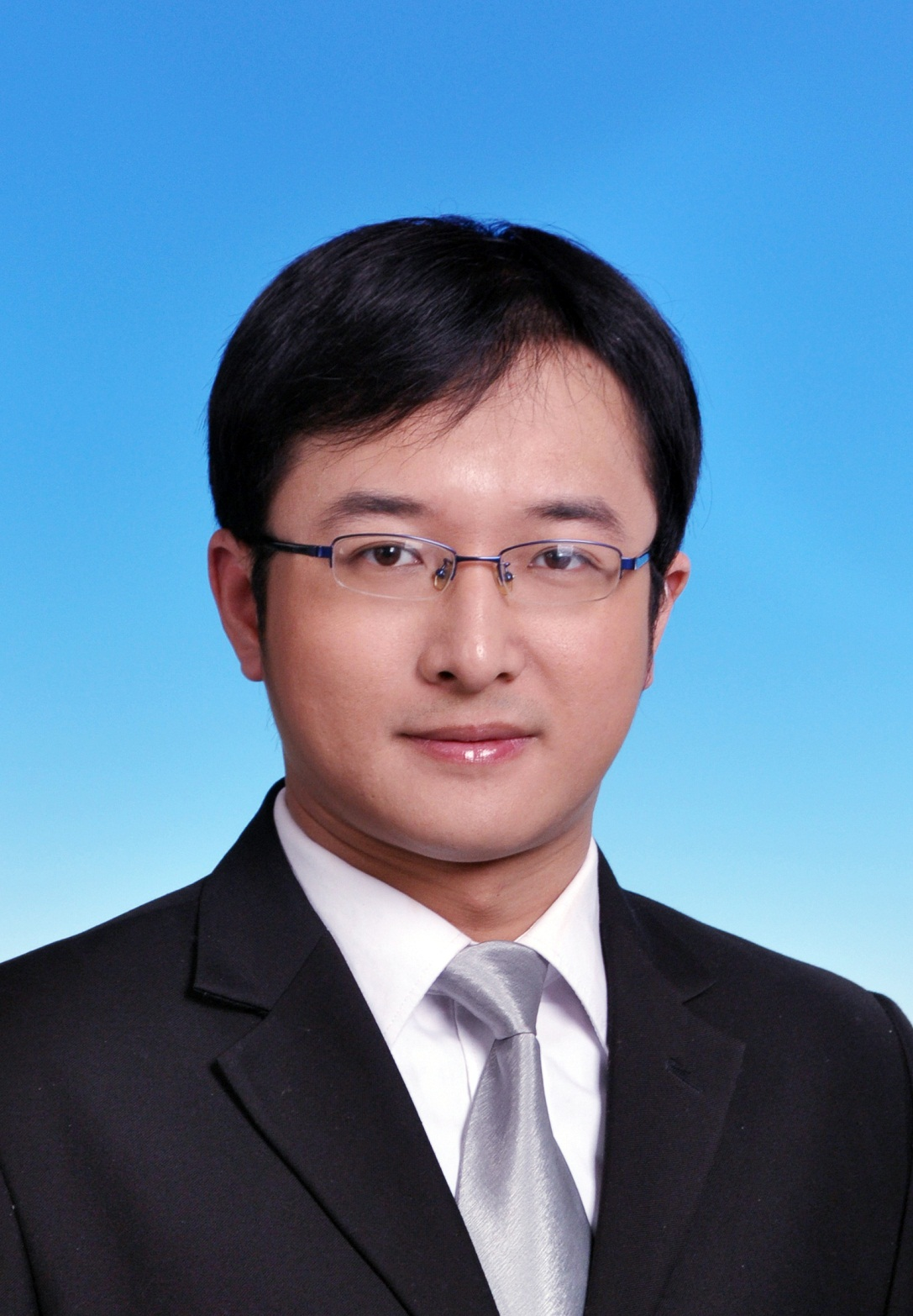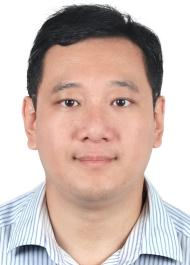
MLISE 2024

Prof. Weijia Jia, Beijing Normal University at Zhuhai, China
(IEEE Fellow,Distinguished Member of CCF)
贾维嘉 教授,北京师范大学珠海校区
Biography:
Weijia Jia is currently a Chair Professor and Director of the Joint AI and Future Networking Research Institute of Beijing Normal University (BNU, Zhuhai) and United International College (UIC), Zhuhai, Guangdong, China. He also serves as the VP for Research at UIC China. Before joining BNU/UIC, he served as the Deputy Director of the State Kay Laboratory of Internet of Things for Smart City at the University of Macau and Zhiyuan Chair Professor at Shanghai Jiaotong University, PR China. He received his BSc/MSc degrees from Center South University, China in 1982 and 1984, and his a PhD degree from Polytechnic Faculty of Mons, Belgium in 1993, all in computer science. Between 1993 to 1995, he joined the German National Research Center for Information Science (GMD) in Bonn (St. Augustine) as a research fellow. From 1995 to 2013, he served at the City University of Hong Kong as a professor. His contributions have been recognized for the research of optimal network routing and deployment, vertex cover, anycast and multicast protocols, sensors networking, knowledge relation extractions, NLP, and intelligent edge computing. He has over 600 publications in prestigious international journals/conferences, including papers, books, and book chapters. He has received the best product awards from the International Science & Tech. Expo (Shenzhen) in 2011/2012 the 1st Prize of Scientific Research Awards from the Ministry of Education of China in 2017 and many provincial science and tech awards. He has served as an area editor for various prestige international journals, chair, and PC member/keynote speaker for many top international conferences. He is the Fellow of IEEE and the Distinguished Member of CCF.
Speech Title:
LLM Meets with Edges
Abstract:
This talk will introduce some of our team’s work on AI and edge computing (EC) with focus on the issues of resource scheduling of EC and the booming of LLM. In particular, we will share our recent research experiences of building up the EC-LLM infrastructures at Beijing Normal University at Zhuhai.

Prof. Ke Tang, Southern University of Science and Technology, China
(IEEE Fellow, Changjiang Scholar Professor for Artificial Intelligence)
唐珂 教授,南方科技大学
Biography:
Ke Tang is a Professor at the Department of Computer Science and Engineering, Southern University of Science and Technology (SUSTech). His major research interests include evolutionary computation, machine learning, and their applications. He is a Fellow of IEEE and Changjiang Scholar Professor for Artificial Intelligence. He is also the recipient of many national and international awards, such as the IEEE Computational Intelligence Society Outstanding Early Career Award, the Natural Science Award of the Ministry of Education of China, and the Newton Advanced Fellowship of the Royal Society, UK.
Speech Title:
Learn to Optimize – From Parameter Tuning to Algorithm Evolution
Abstract:
Most optimization problems of practical significance are typically solved by highly configurable parameterized algorithms. To achieve the best performance on a problem instance, a trial-and-error configuration process is required. In principle, the concept of parameter tuning could be extended to different abstract levels of optimization algorithms, such as the values of control parameters, the building blocks of an algorithm and even at the level of computer codes. In recent years, the continuously developing computing power has allow exploring the potential of parameter tuning more extensively, which has led to an emerging research direction called Learn to Optimize. This talk will first introduce some recent advances along this direction, followed by new technological trends, particularly general-purpose optimization algorithms, that could be expected in the near future.

Prof. Zhuhong You, Northwestern Polytechnical University, China
尤著宏 教授,西北工业大学
Biography:
You Zhuhong, professor and doctoral supervisor in the School of Computer Science of Northwestern Polytechnical University. He is a doctoral candidate of University of Science and Technology of China (USTC), a postdoctoral candidate of Tongji University and Hong Kong Polytechnic University, a recipient of the National Science Foundation for Outstanding Youth, a recipient of the 14th batch of National Specialized Experts of the Organization Department of the Central Committee of the CPC Central Committee (OCAC), a recipient of the National Science Foundation for Excellent Youth, and a recipient of the Xiangjiang Scholar Program of the Ministry of Human Resources and Social Affairs. He is also a recipient of the 14th batch of "National Special Experts" by the Ministry of Organization of China, the "Excellent Youth" Science Foundation of China, and the "Xiangjiang Scholars" program by the Ministry of Human Resources and Social Affairs. He is mainly engaged in the research of pattern recognition, big data analysis and bioinformatics, and has published in IEEE Repertoire, PLOS Computational Biology, Briefings in Bioinformatics, Bioinformatics and other domestic and international academic journals, as well as ISBRA, IJCNN, WCCI, BIBM, etc. He is also a member of the International Society of Bioinformatics, WCCI, BIBM and other international conferences, more than 350 research papers have been published, and more than 290 papers have been indexed by SCI. Among them, there are 192 SCI papers as first and corresponding authors, and 62 papers in the first region of Chinese Academy of Sciences. His papers have been cited nearly 15,000 times by international famous journals and conferences (Google Scholar), with H-index of 66, the highest number of citations for a single paper is 550, and 216 citations for a single paper are more than 10, 10 ESI highly cited papers, 3 hot papers, and he has been selected as one of the most highly cited scholars in the world for many times by Elsevier, Stanford University and the University of California at Los Angeles. He has been listed in Elsevier's "Highly Cited Scholars List" for many times, and is one of the top 2% scientists in the world in Stanford University. He has written one monograph and applied for 16 invention patents. He has been awarded the first prize of Provincial Natural Science Award (the 1st completer), the second prize of Natural Science Award of Ministry of Education (the 2nd completer), and the second prize of Natural Science Award of Chinese Society of Automation (the 3rd), and so on. He has served as an editorial board member and guest editorial board member of more than ten SCI journals and program committee member of many international conferences.
Speech Title:
Biomedical Knowledge Graph Representation Learning: Application in Molecular Interactions Prediction
Abstract:
One of the key issues in the field of biomedicine in the post-genomic era is to systematically understand and analyze the inter-molecular relationships among biomolecules. Complex life activities are undertaken by a variety of biochemical molecules, which interact with each other to maintain the normal physiological functions of the organism, and whose perturbations or disruptions will lead to malfunctions or complex diseases. Guided by the idea of reductionism, existing researches have conducted in-depth studies on the activities of single or very few kinds of molecules, but lack of global thinking on the network of multi-molecular interactions, ignoring its holistic and systematic nature. With the advancement of multiomics technology, single-cell sequencing technology and other research methods, a large amount of biomedical big data on intermolecular correlations has been rapidly accumulated, which challenges the traditional analysis and mining methods, but also provides valuable data support for us to explore the complex biomolecular correlation networks. This report combines two artificial intelligence techniques, knowledge graph and recommender system, by learning the low-dimensional representations of various biomolecules in the knowledge graph and multimodal fusion with biomolecular attribute features, and proposes a predictive mining method of molecular association graph based on graph machine learning on different scales of molecular association graph, this study will systematically reveal and construct different scales of molecular association graphs from molecular level to biomedical system level. molecular association maps at different scales from the molecular level to the biomedical system level.

Prof. Zhen Li, South China Agricultural University
李震 教授,华南农业大学
(Dean of the College of Electronic Engineering (College of Artificial Intelligence) at South China Agricultural University)
Biography:
Li Zhen, PhD, Professor, Doctoral Supervisor. The current Dean of the College of Electronic Engineering (College of Artificial Intelligence) at South China Agricultural University, Expert Group of National Agricultural Mechanization Technology Innovation, Deputy Chief of the National Citrus Industry Technology System, Director of the Mechanization Research Group, and Expert Group Member of Orchard Management Mechanization Position and System Execution, Director of the Guangdong Agricultural Information Monitoring Engineering Technology Research Center, Guangdong Rural Science and Technology Commissioner, Director of the China Citrus Society, and Vice Chairman of the Guangzhou Instrument and Meter Society.
Professor Li Zhen is mainly engaged in various intelligent operation technologies and equipment such as seedling cultivation, transportation, plant protection, picking, tillage, facilities, and deep processing in mountain orchards, as well as research on orchard information management technology. He has presided over more than 20 research projects, including the National Natural Science Foundation General and Youth Project, the National Modern Agricultural Industry Technology System Special Fund Project, the Central Financial Support for Local University Development Fund Project, and the National Key Research and Development Plan Sub project. He has published more than 120 high-level scientific research papers and obtained 65 national invention patent authorizations, including 14 first inventors. "Mountain Orchard Self moving Electric Monorail Intelligent Transportation Equipment and Application Technology" has been selected as the main technology promoted by the Ministry of Agriculture and Rural Affairs, and his research results have won the Excellent Scientific Research Achievement Award in Higher Education. First Prize of Science and Technology Invention Award 11 provincial-level and ministerial level scientific and technological awards, including the second prize of Shennong China Agricultural Science and Technology Award.
Speech Title:
Research Progress on Intelligent Pomelo Harvesting Equipment for Unstructured Environments
Abstract:
China is the world's largest producer and consumer of pomelo, with a total output value exceeding billions of yuan. It has become one of the key industries driving agricultural rural economic development in southern regions. Due to terrain conditions and planting patterns, manual labor plays a crucial role in pomelo orchard production and management, accounting for approximately 50-70% of the total production cost. Particularly during the picking process, labor costs make up 61.5% of the overall expenses. Implementing mechanized and intelligent harvesting methods for pomelo fruits is an effective approach to enhance stability and competitiveness within the industry chain. This project aims to design a cutting mechanism for pomelo fruits and study tree optimization techniques. The main objectives include: 1) Utilizing principles from physics, material mechanics, and finite element analysis to investigate the physical and mechanical characteristics of pomelo fruits as well as their cutting performance when detached froming mechanism responsible for fruit stem fracture. 2) Developing a method that can predict both position and orientation of fruit stems while incorporating key features in complex environments. Additionally, establishing a theoretical model for recognizing pomelos and locating fruit stems even under occlusion. 3) Studying robotic arm actuators with long arm spans and wide working ranges; devising motion methods along with control theory models that enable multi-position cutting capabilities. 4) Exploring appropriate pruning technology management practices specifically tailored for pomelo trees within plantations; enhancing picking point identification while reducing collision probabilities through branch removals and thinning out excess fruit. Experimental results demonstrate that this robot achieves an accuracy rate of 94% with a harvesting efficiency rate of 2 per minute.